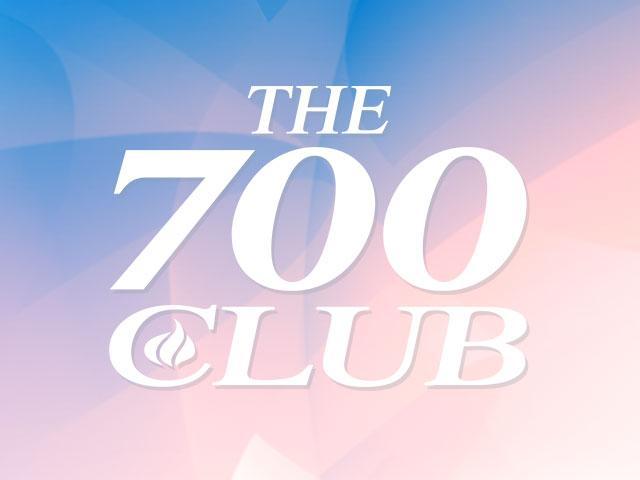"Mysteries of the Messiah" with Rabbi Jason Sobel
Encountering The Messiah
Rabbi Jason, as he likes to be called, grew up in a devout Jewish family in New Jersey. Noting the contrast between the faith practices in his home and the worldly perspectives in his neighborhood, he says, “I became fluent in the culture, even learning how to ‘rap with my homies,’ (but) I remained faithful to our Jewish tradition.” He kept trying to figure out life in a world that was constantly drawing him away from spiritual things.
Jason’s own spiritual perspective changed forever one day when he was sixteen. He then had what he calls an encounter with Yeshua, the Hebrew word for Jesus. “This was the first time I’d ever felt as though the Lord was speaking directly to me. It was so unbelievable and yet so real, and I will never forget His words. He said, ‘Many are called, but few are chosen.’” Jason asked the Lord if he were chosen, and the answer was, “Yes,” which elated him.
Soon after, his best friend, John, convinced Jason to go with him to a Messianic synagogue led by Rabbi Jonathan Cahn. The message resonated with him and when an invitation was given to be “born anew,” Jason stood up and was led in a prayer to receive Yeshua. Before leaving, he received a New Testament, the first he’d ever laid eyes on, and began reading it at home. Though he tried to hide it from his parents, his mother later found it and confronted him: “What is this? Don’t tell me you’re a Jew thinking about believing in Jesus!” She then called their rabbi to meet with her son. Jason prepared diligently for the meeting, by making a list of the many promises and prophecies of the Messiah from the Hebrew Scriptures. He had a good conversation with the rabbi, though they disagreed about Jesus fulfilling those Messianic prophecies. Today, Rabbi Jason says that his father has come to believe in Yeshua and his mother is “in process.”
The Messiah and The Cross
Highlighting the treasures which connect the Old and New Testaments is Rabbi Jason’s passion and calling. He says understanding those links results in spiritual growth and transformation, and is preparation for revival. As we approach Easter, he likes to focus on the cross, where Jesus gloriously accomplished redemption. That connection starts with the familiar story of the fall of man in Genesis, chapter three. He describes the results of Adam’s and Eve’s fall, as four types of exile, which speaks of disconnection and distance:
- Spiritual exile, being disconnected from God
- Relational exile, being disconnected from each other
- Emotional/psychological exile, being disconnected from our true identity
- Physical exile, being banished from Eden, the creation cursed
Then Rabbi Jason points to Genesis 3:15, the first Messianic prophecy in the Old Testament: “And I will make enemies of you and the woman, and of your offspring and her Descendant; He shall bruise you on the head, and you shall bruise Him on the heel,” referring to Satan’s hope to destroy Jesus on the cross, only to be dealt an eternal death blow when He returns. Jesus’ work on the cross, the rabbi teaches, reverses all four aspects of exile, confirmed in the New Testament:
- Spiritually - allowing Himself to be nailed to a tree, our means of spiritual exile (Matt. 27:32-44)
- Relationally - though rejected and betrayed, He still chose to forgive (Luke 23:34)
- Emotionally/psychologically - enduring mockery by men, and feeling abandoned by God (Mark 15:33-34)
- Physically - enduring the exquisite physical agony of crucifixion (John 19:17-30)
The Messiah and Pentecost
“When the day of Pentecost arrived, they were all together in one place. And suddenly there came from heaven a sound like a mighty rushing wind, and it filled the entire house where they were sitting. And divided tongues as of fire appeared to them and rested on each one of them. And they were all filled with the Holy Spirit and began to speak in other tongues as the Spirit gave them utterance.” Acts 2:1-4
In keeping with the approaching season of Pentecost, Rabbi Jason says there are wonderful connections to note between the Testaments. “Acts 2 is a reenactment of what happened at Mount Sinai. The booming of the wind is like the thundering at Sinai when ‘the whole mountain quaked greatly’ (Exodus 19:18). The flames that descended into the upper room point back to the Lord, who descended in fire upon Mount Sinai. The divided tongues of fire in Acts 2 are reminiscent of and connect to the divided winged torches of fire that are said to have inscribed the Ten Commandments on the stone tablets. This connection is monumental. God established the Mosaic Covenant with Israel at Sinai, but Israel broke this covenant continually. On Pentecost, the same day God initiated the Mosaic Covenant, the New Covenant was experienced with similar signs and wonders as a fulfillment of prophecy. Fiery torches wrote the Mosaic Covenant on stone tablets, but the New Covenant was greater because it was indelibly inscribed by the fire of the Spirit on the hearts of all who believe.”


